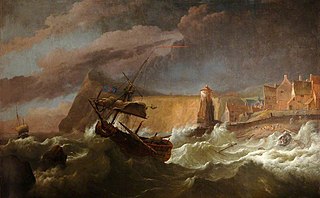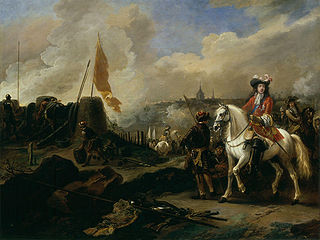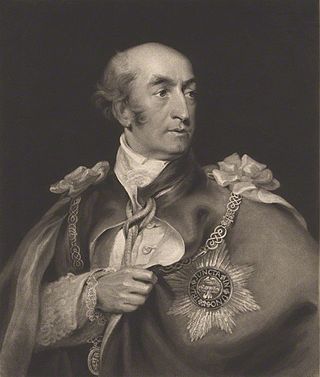| |||||
| Centuries: | |||||
|---|---|---|---|---|---|
| Decades: | |||||
| See also: | Other events of 1732 List of years in Ireland | ||||
Events from the year 1732 in Ireland.
| |||||
| Centuries: | |||||
|---|---|---|---|---|---|
| Decades: | |||||
| See also: | Other events of 1732 List of years in Ireland | ||||
Events from the year 1732 in Ireland.
The 1640s decade ran from January 1, 1640, to December 31, 1649.

1707 (MDCCVII) was a common year starting on Saturday of the Gregorian calendar and a common year starting on Wednesday of the Julian calendar, the 1707th year of the Common Era (CE) and Anno Domini (AD) designations, the 707th year of the 2nd millennium, the 7th year of the 18th century, and the 8th year of the 1700s decade. As of the start of 1707, the Gregorian calendar was 11 days ahead of the Julian calendar, which remained in localized use until 1923.

1691 (MDCXCI) was a common year starting on Monday of the Gregorian calendar and a common year starting on Thursday of the Julian calendar, the 1691st year of the Common Era (CE) and Anno Domini (AD) designations, the 691st year of the 2nd millennium, the 91st year of the 17th century, and the 2nd year of the 1690s decade. As of the start of 1691, the Gregorian calendar was 10 days ahead of the Julian calendar, which remained in localized use until 1923.

1685 (MDCLXXXV) was a common year starting on Monday of the Gregorian calendar and a common year starting on Thursday of the Julian calendar, the 1685th year of the Common Era (CE) and Anno Domini (AD) designations, the 685th year of the 2nd millennium, the 85th year of the 17th century, and the 6th year of the 1680s decade. As of the start of 1685, the Gregorian calendar was 10 days ahead of the Julian calendar, which remained in localized use until 1923.

1643 (MDCXLIII) was a common year starting on Thursday of the Gregorian calendar and a common year starting on Sunday of the Julian calendar, the 1643rd year of the Common Era (CE) and Anno Domini (AD) designations, the 643rd year of the 2nd millennium, the 43rd year of the 17th century, and the 4th year of the 1640s decade. As of the start of 1643, the Gregorian calendar was 10 days ahead of the Julian calendar, which remained in localized use until 1923.

.

1689 (MDCLXXXIX) was a common year starting on Saturday of the Gregorian calendar and a common year starting on Tuesday of the Julian calendar, the 1689th year of the Common Era (CE) and Anno Domini (AD) designations, the 689th year of the 2nd millennium, the 89th year of the 17th century, and the 10th and last year of the 1680s decade. As of the start of 1689, the Gregorian calendar was 10 days ahead of the Julian calendar, which remained in localized use until 1923.

1654 (MDCLIV) was a common year starting on Thursday of the Gregorian calendar and a common year starting on Sunday of the Julian calendar, the 1654th year of the Common Era (CE) and Anno Domini (AD) designations, the 654th year of the 2nd millennium, the 54th year of the 17th century, and the 5th year of the 1650s decade. As of the start of 1654, the Gregorian calendar was 10 days ahead of the Julian calendar, which remained in localized use until 1923.

1712 (MDCCXII) was a leap year starting on Friday of the Gregorian calendar and a leap year starting on Tuesday of the Julian calendar, the 1712th year of the Common Era (CE) and Anno Domini (AD) designations, the 712th year of the 2nd millennium, the 12th year of the 18th century, and the 3rd year of the 1710s decade. As of the start of 1712, the Gregorian calendar was 11 days ahead of the Julian calendar, which remained in localized use until 1923.

Baron de Blaquiere, of Ardkill in the County of Londonderry, was a title in the Peerage of Ireland. It was created on 30 July 1800 for the politician Sir John Blaquiere, 1st Baronet, Chief Secretary for Ireland between 1772 and 1777. He had already been created a Baronet, of Ardkill in the County of Londonderry, in the Baronetage of Ireland on 16 July 1784. He was the son of Jean de Blaquiere, a merchant who emigrated to England from France in 1685. Lord de Blaquiere was succeeded by his eldest son, the second Baron. He died unmarried and was succeeded by his younger brother, the third Baron. He was a general in the British Army. His two sons, John the fourth Baron and William Barnard the fifth Baron, both succeeded in the title. The latter was a Captain in the Royal Navy. He was succeeded by his first cousin once removed, the sixth Baron. He was the grandson of the Hon. Peter de Blaquière, fourth son of the first Baron. Lord de Blaquiere's two sons, John & Alan Boyle were both killed in the First World War and on his death in 1920 the titles became extinct; leaving his widow Lucinne Henriette Adine, the baroness and her daughter Kathleen b.1891 who in 1911 married Hon. Dudley Massey Pigot, of Carleton, the only son of Baroness Dorchester.

Thomas John Hamilton FitzMaurice, 5th Earl of Orkney was a Scottish aristocrat.

1776 (MDCCLXXVI) was a leap year starting on Monday of the Gregorian calendar and a leap year starting on Friday of the Julian calendar, the 1776th year of the Common Era (CE) and Anno Domini (AD) designations, the 776th year of the 2nd millennium, the 76th year of the 18th century, and the 7th year of the 1770s decade. As of the start of 1776, the Gregorian calendar was 11 days ahead of the Julian calendar, which remained in localized use until 1923.
Events from the year 1675 in Ireland.
Events from the year 1812 in Ireland.
Events from the year 1783 in Ireland.
Events from the year 1709 in Ireland.
Events from the year 1860 in Ireland.
Events from the year 1696 in Ireland.
Events from the year 1630 in Ireland.
Events from the year 1721 in Ireland.